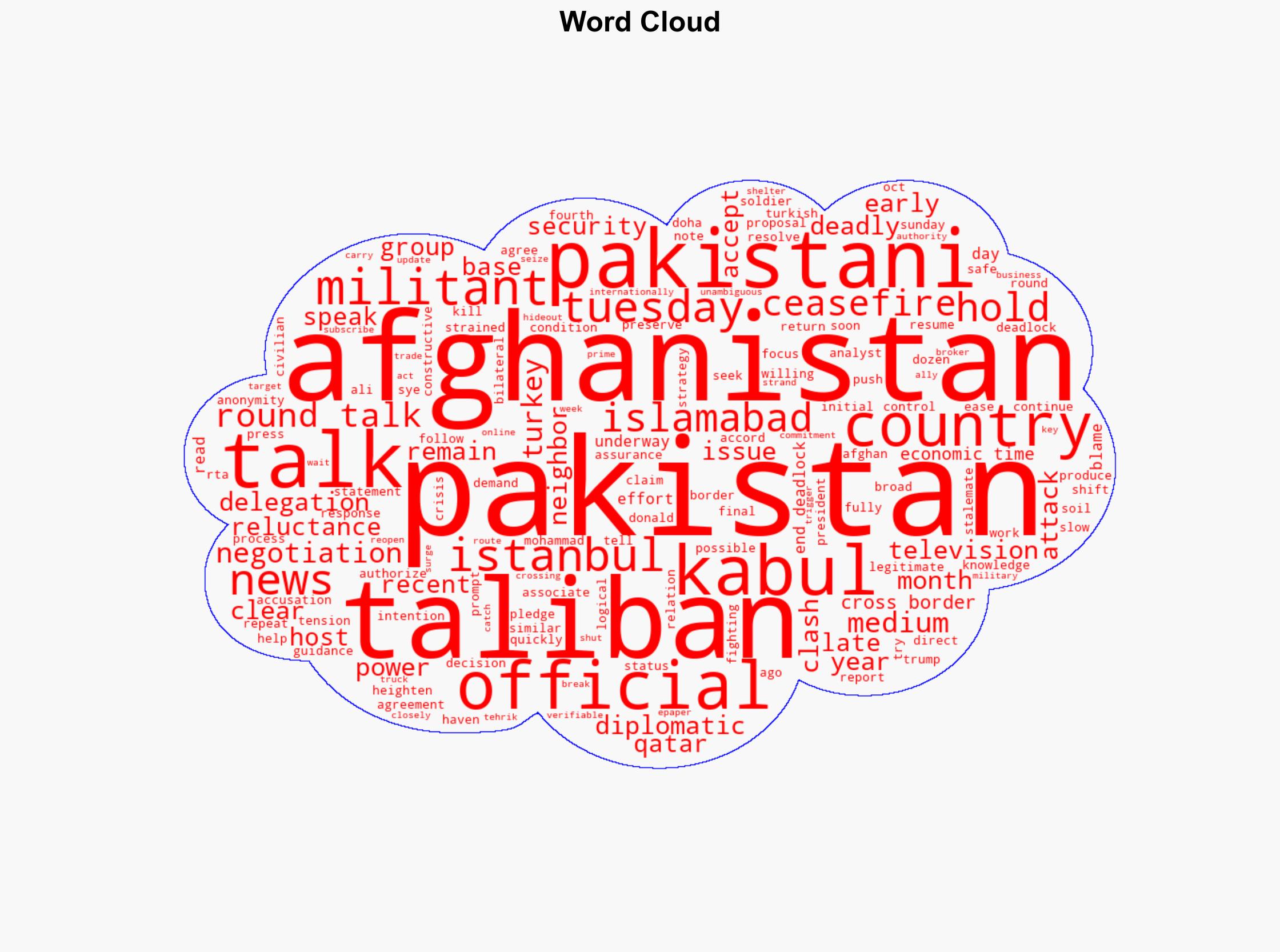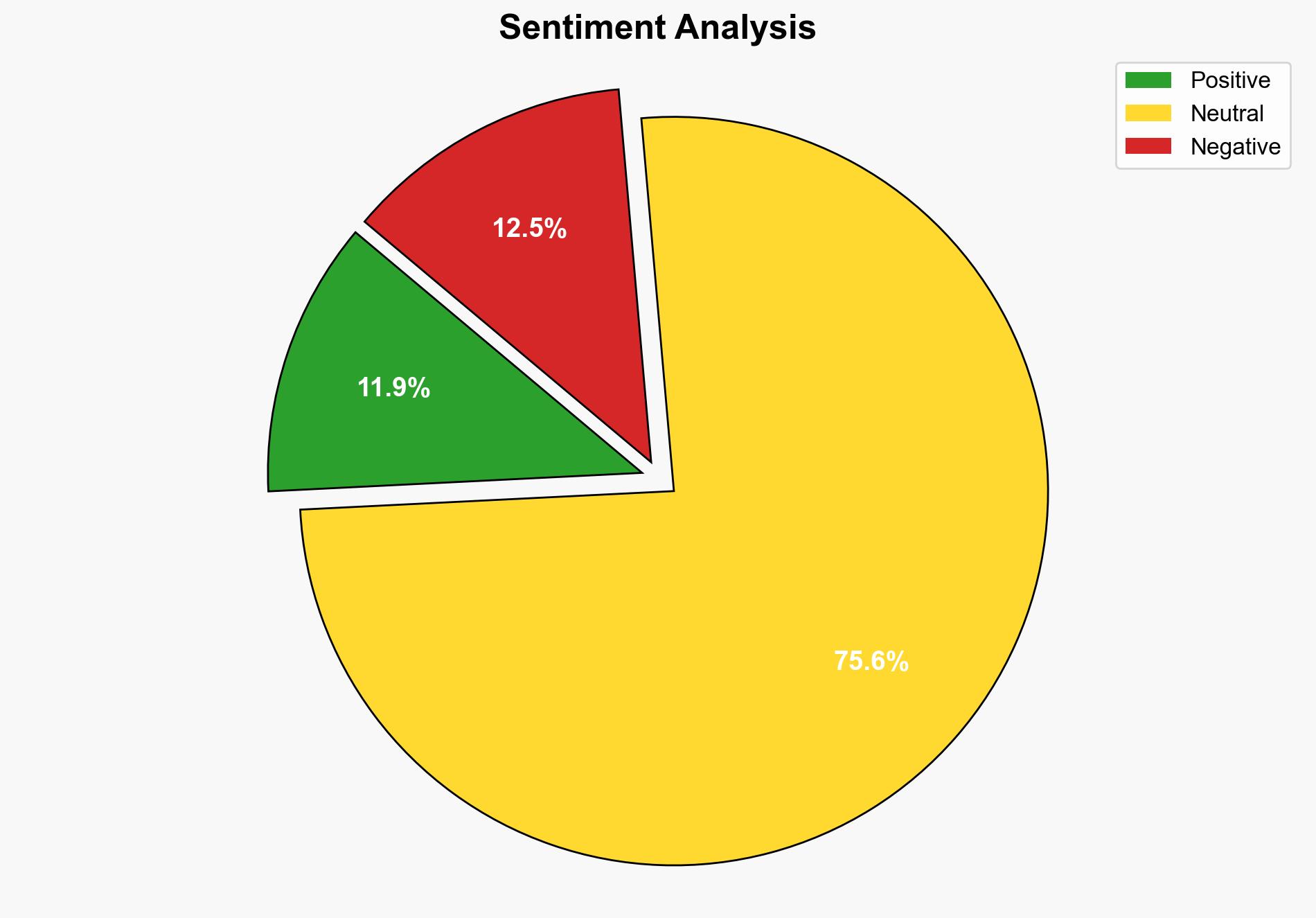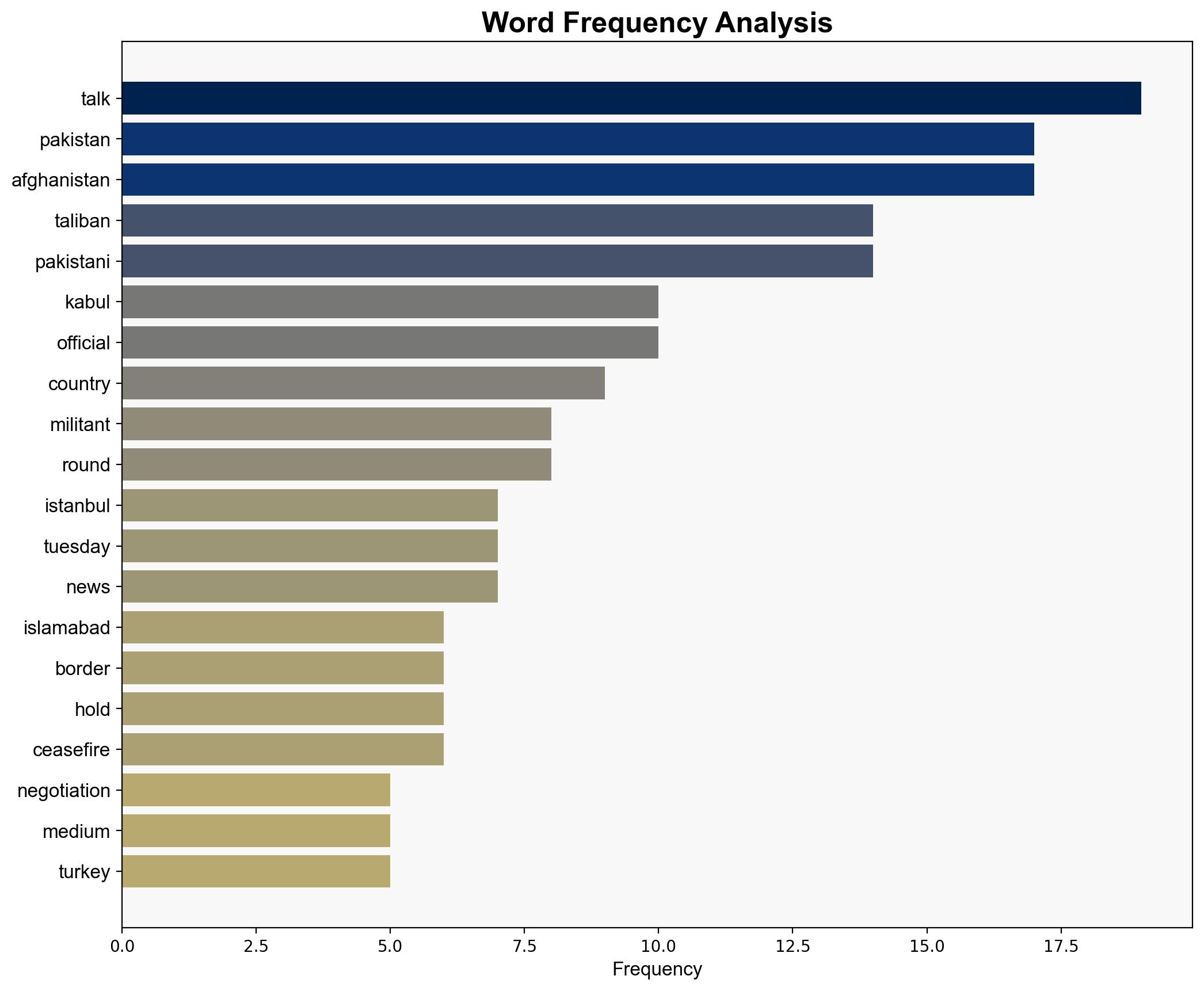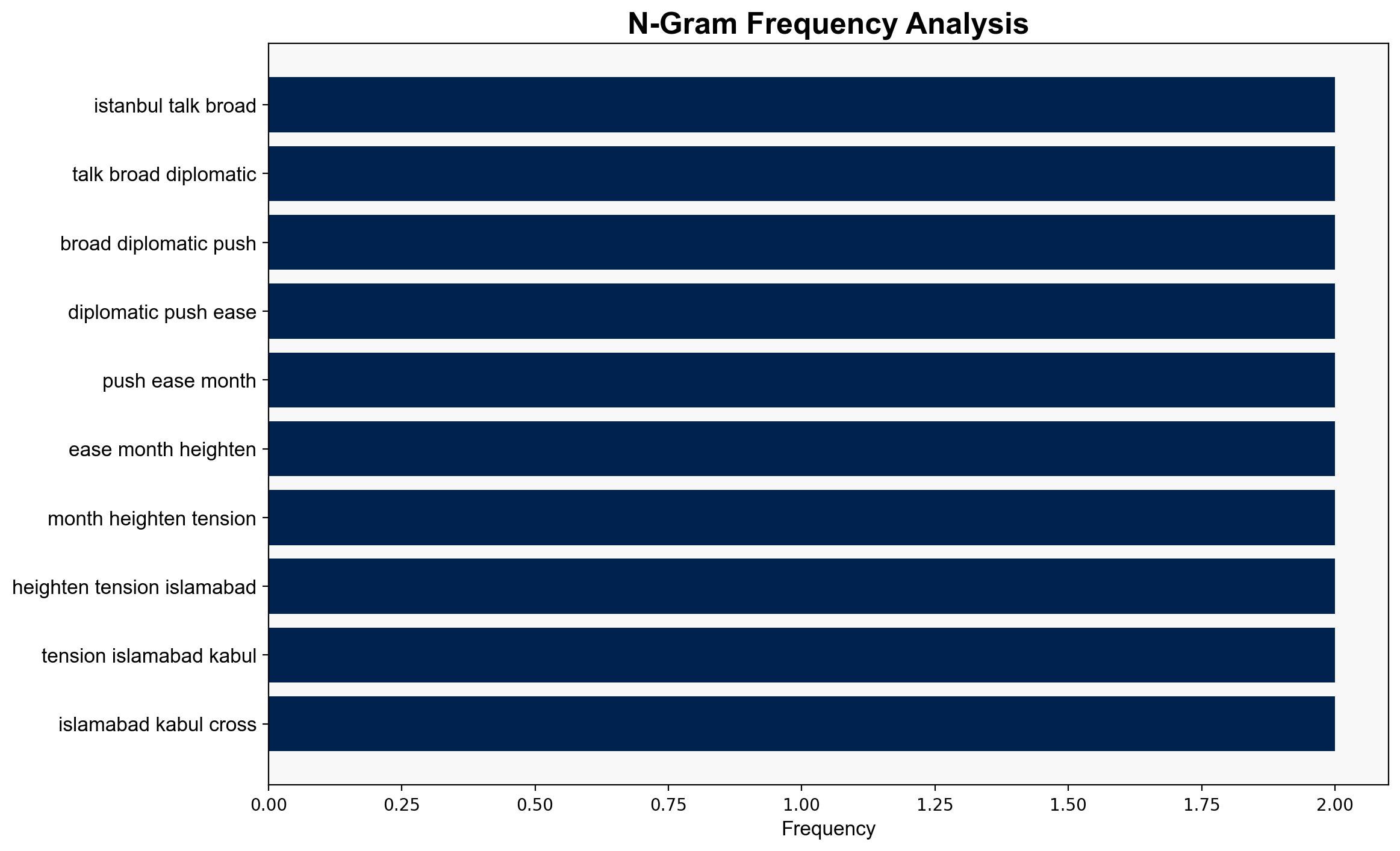Peace talks hosted by Turkey between Pakistan and Afghanistan hit impasse in Istanbul – The Times of India
Published on: 2025-10-28
Intelligence Report: Peace talks hosted by Turkey between Pakistan and Afghanistan hit impasse in Istanbul – The Times of India
1. BLUF (Bottom Line Up Front)
The peace talks between Pakistan and Afghanistan in Istanbul have reached an impasse, primarily due to Kabul’s reluctance to meet Pakistan’s demands for assurances against militant activities on Afghan soil. The most supported hypothesis is that the deadlock is due to strategic posturing by both sides, with a medium confidence level. It is recommended to enhance diplomatic engagement through third-party mediators to break the stalemate.
2. Competing Hypotheses
1. **Strategic Posturing Hypothesis**: The impasse is a result of both Pakistan and Afghanistan using the talks to strengthen their negotiating positions. Pakistan demands assurances against militant activities, while Afghanistan seeks to avoid commitments that could weaken its sovereignty or internal political standing.
2. **Genuine Deadlock Hypothesis**: The talks have stalled due to genuine disagreements over security issues, with neither side willing to compromise due to internal pressures and distrust.
Using ACH 2.0, the Strategic Posturing Hypothesis is better supported as both sides have shown willingness to engage in talks, indicating a preference for negotiation over outright conflict, despite the current impasse.
3. Key Assumptions and Red Flags
– **Assumptions**: It is assumed that both Pakistan and Afghanistan are acting in good faith and that their public statements reflect their true intentions.
– **Red Flags**: The anonymity of Pakistani officials and the lack of a clear public statement from Afghan officials may indicate attempts to control the narrative or conceal true intentions.
– **Blind Spots**: The potential influence of external actors, such as other regional powers, on the negotiation process is not fully explored.
4. Implications and Strategic Risks
The impasse could lead to increased cross-border tensions and potential military escalations, impacting regional stability. Economically, prolonged border closures could disrupt trade. Geopolitically, failure to resolve these issues may invite intervention from other regional powers, complicating the situation further. The psychological impact on civilian populations could increase anti-government sentiments in both countries.
5. Recommendations and Outlook
- Engage neutral third-party mediators to facilitate dialogue and propose confidence-building measures.
- Encourage both parties to publicly commit to a timeline for resuming talks to maintain diplomatic momentum.
- Scenario projections:
- Best: Successful mediation leads to a comprehensive agreement on security issues.
- Worst: Talks collapse, leading to increased military confrontations and regional instability.
- Most Likely: Prolonged negotiations with intermittent progress, requiring sustained diplomatic efforts.
6. Key Individuals and Entities
– Pakistani security officials (unnamed)
– Afghan delegation (unnamed)
– Turkish officials (unnamed)
– President Donald Trump (mentioned in context of pledging support)
7. Thematic Tags
national security threats, cybersecurity, counter-terrorism, regional focus




